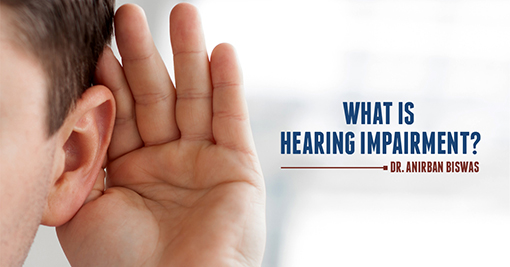 Inability to hear properly and distinctly is a major handicap, if not a curse in life. It has multifarious implications and severely impacts the quality of life of all affected individuals. Even a minor hearing loss in one ear has far reaching repercussions. Hearing loss in any form (mild /moderate/ severe) and at any age jeopardises an individual’s ability to communicate with others. Inability to communicate effortlessly leads to feelings of loneliness, isolation, and frustration, not only among older people but also in children and young adults too.
Inability to hear properly and distinctly is a major handicap, if not a curse in life. It has multifarious implications and severely impacts the quality of life of all affected individuals. Even a minor hearing loss in one ear has far reaching repercussions. Hearing loss in any form (mild /moderate/ severe) and at any age jeopardises an individual’s ability to communicate with others. Inability to communicate effortlessly leads to feelings of loneliness, isolation, and frustration, not only among older people but also in children and young adults too.
As social creatures, human beings desire and need to share experiences and develop intimacy with other people through communication. But this communication skill is severely impaired if there is a hearing problem or a speech problem. Communication is the basis for development and sustenance of physical, social, and cognitive skills in order to pursue a good quality of life Communication skills i.e., being able to effortlessly understand what others are saying and speaking in a voice that others can understand are equally important across all age groups.
Inability to comprehend what is being communicated or what one is expected to understand under normal conditions is just one of the many handicaps faced by the hearing impaired person. A child with even very minor hearing deficits even in one ear will have multiple developmental problems and will not be able to acquire normal speech-language skills, will have poor development of cognitive skills and also be a poor learner. They will have poor grades in school and be a subject of ridicule because of their defective speech and poor comprehensive faculties both of which is die to the hearing loss. Hearing loss in children needs to be identified early in life and remedial measures initiated immediately as otherwise the child’s development is impaired from all aspects. In young adults with hearing impairment, there will be frustration and emotional problems. Such individuals have to expend a lot of extra mental effort in trying to comprehend what they hear. This taxes the brain and induces mental strain which in turn leads to a variety of mental and physical health problems by releasing stress hormones. They face obstacles and are constrained in climbing up the social and professional ladder which is so very important in this phase of life. In middle aged adults and in the elderly hearing impairment severely impairs cognitive skills and makes them social outcasts. They develop emotional and psychological problems and get stressed which itself has a variety of physical and mental ramifications. It is contended that hearing impairment in the elderly induces cognitive impairment and even dementia.
The irony is that most hearing impaired adults take the hearing impairment very casually and do not seek remedial measures even though excellent solutions are now available for all types of hearing losses. Some hearing losses are correctable by medical / surgical treatment but most require suitable hearing aids and some require cochlear or middle ear implants. Universally hearing impaired adults harbour a weird perception that if others are aware of their hearing impairment they will be looked down upon and considered as old and mentally infirm. Hence most try to hide the disability and are averse to use of hearing aids. Even if they face difficulties they try to live with the handicap and think that they will be able to ‘manage’ and hoodwink others about their hearing disability. Nothing can be further from truth. What they do not realise is that the hearing impairment is more visible than the hearing aid..
Hearing sensitivity can be very easily and non-invasively (i.e., painlessly) tested in all ages right from newborns to very old aged persons. Facilities for accurate hearing testing are available everywhere now. Disabling hearing loss as per the WHO guidelines is defined to be any hearing loss greater than 40 decibels (dB) in the better hearing ear in adults and a hearing loss greater than 30 dB in the better hearing ear in children. All such persons need correction of the hearing loss. Though young children need it more urgently than others nevertheless correction of any hearing loss is a urgent necessity in all age groups. Modern technology has perfectly customised remedial measures for all types of hearing impairments. Living with a hearing impairment is no longer an option today.
Happy hearing
Dr. Anirban Biswas
Vertigo & Deafness Clinic
BJ-252, Kolkata – 91
